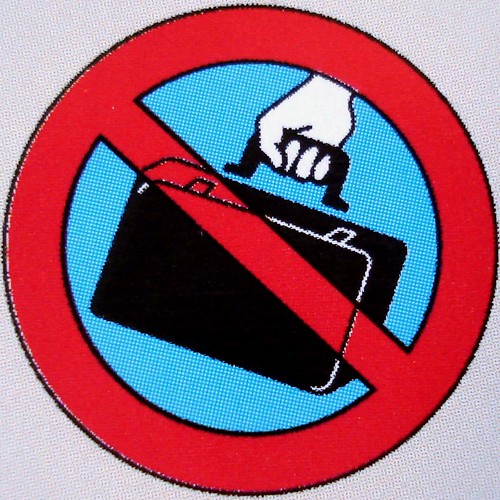Lobbyists Serving on Advisory Committees – Where’s the Problem?
by Matthew Madia, 9/30/2009
The new White House policy aimed at ridding federal advisory committees of lobbyists raises more questions than answers, as OMB Watch discusses in an article released yesterday.
 The White House says, “It is our aspiration that federally-registered lobbyists not be appointed to agency advisory boards and commissions,” but it’s not totally clear what problem the administration is trying to solve.
The White House says, “It is our aspiration that federally-registered lobbyists not be appointed to agency advisory boards and commissions,” but it’s not totally clear what problem the administration is trying to solve.
The policy, set forth in a blog post by White House special counsel Norm Eisen, is a continuation of the White House’s fetish for keeping lobbyists out of the Obama administration. White House officials have consistently failed to come to grips with two key truths: 1) some lobbyists serve the public interest, and their experience and expertise may make them ideal candidates for government service; and 2) Special interests employ non-lobbyists who could also be considered inappropriate for some government positions, making policies that only target lobbyists too easy to evade.
Moreover, while the federal advisory committee system does suffer from its fair share of ills, the presence of lobbyists isn’t one of them. Sometimes, members are appointed despite having a clear conflict of interest – a scientist having received funding from a company’s whose medical device is being examined by the FDA, for example. A committee’s advice can be compromised when it fails to distinguish between expert members expected to provide impartial advice and other members asked to represent stakeholder groups and provide opinion. (Increased transparency could go along way toward solving some of these problems. Requiring committee members to disclose lobbying activities is a more sensible reform than an outright ban.)
Banning lobbyists is not a reform often talked about, and it is not included in a federal advisory committee improvement bill currently under consideration in the House. The new White House policy is a solution in search of a problem.
One advisory committee likely to ignore the ban is the Homeland Security Advisory Council. One of the Council’s members is Kenneth “Chuck” Canterbury, president of the Fraternal Order of Police, the major union for police officers. Among other things, the Council is to provide “[r]ecommendations for the development of strategies and policies that will further the Department’s ability to prevent, protect against, respond to and recover from terrorist attacks, major disasters, or other emergencies.”
Seems like Mr. Canterbury is well suited for the committee. But he is also a registered lobbyist, according to House records. Will the White House’s “aspirations” kick Canterbury off the council? Unlikely – but the example proves just how half-baked this policy is.
Image by Flickr user mag3737, used under a Creative Commons license.



